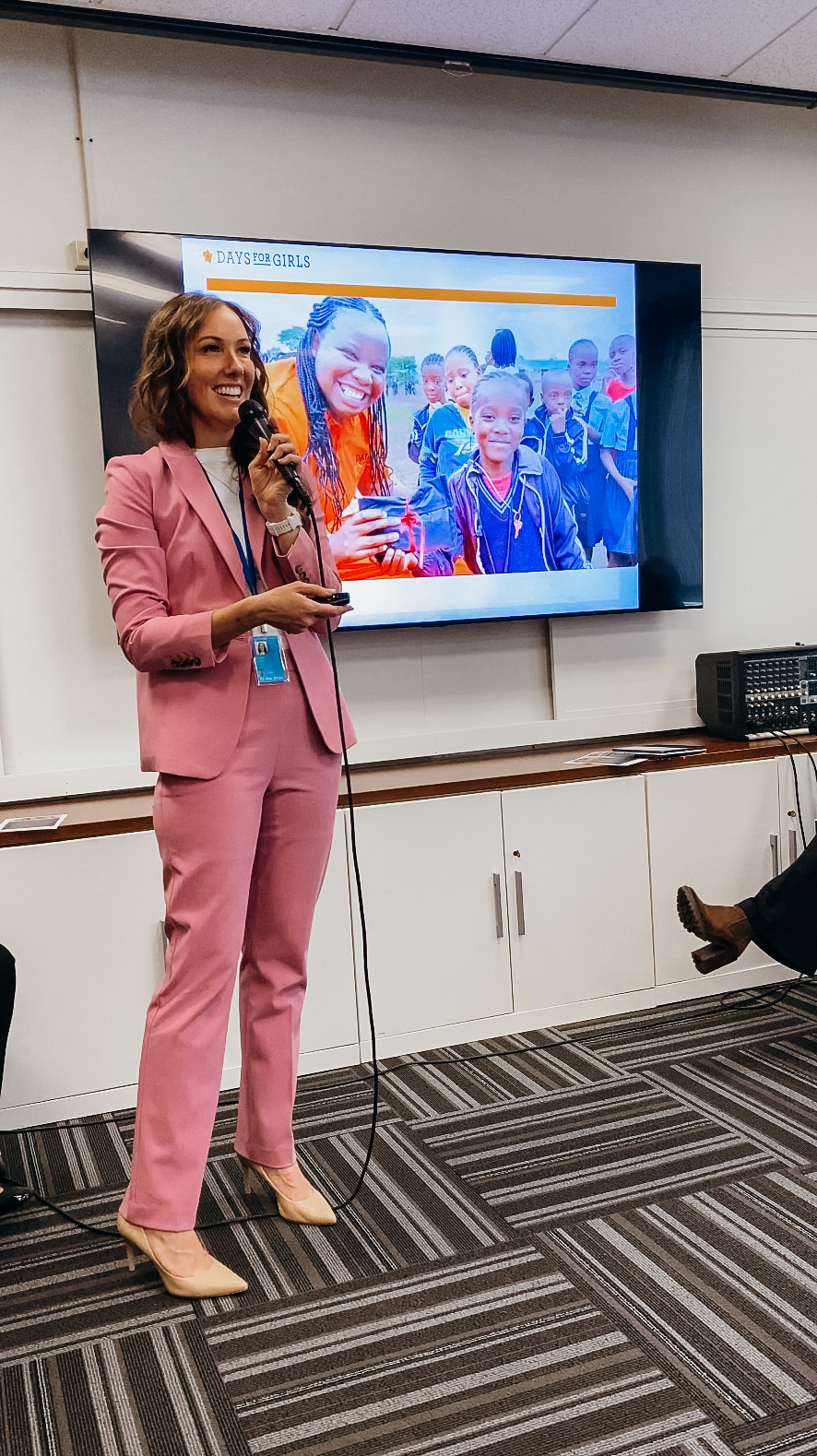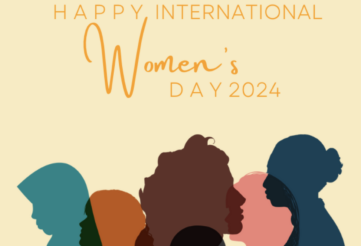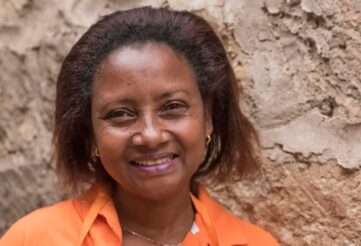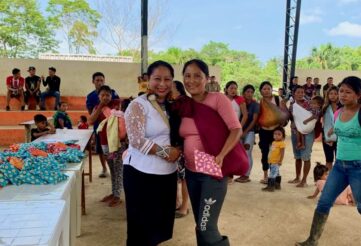Days for Girls Advocating for Menstrual Health at the CSW68 Forum in New York

Last month, Days for Girls International had the opportunity to advocate for menstrual health at the CSW68 NGO Forum in New York. On March 20, Days for Girls CEO, Tiffany Larson, took to the stage to discuss the theme, “Economic Empowerment of Women Entrepreneurs, Gender Equality, and Sustainable Development Goals.” Tiffany's presentation shone a spotlight on menstrual health and our Social Enterprise program, in perfect alignment with the forum's emphasis on empowering women entrepreneurs.
Tiffany’s 2024 UN CSW Speech:

“I’d like to start by introducing you to a girl named Alice from Nakuru, Kenya. Alice was at school the day she started her first period. She knew she had leaked through and that there was a stain on the back of her skirt. She was sitting there, uncomfortable and didn't know what to do. She was horrified when her teacher called her to the board to come forward and participate in class. Alice sat there, trying to figure out, “Should I go forward, and obey my teacher? Or am I going to get laughed at by my classmates?” That day, she decided to stay sitting down. As punishment, her teacher slapped her in the face.
“This began years of Alice trying to navigate her menstrual health without the adequate education or resources to be able to do so. She would use proxy products, using whatever she could get her hands on: sometimes rags, newspaper, or leaves. Sometimes she would tear pages out of her school textbooks. This would lead to infections and a host of other problems.
“Then, on the day of the pivotal national exam for Kenya, she was on her period. She was using a proxy product. She was distracted and worried she was going to leak through. Alice is exceptionally brilliant, but because of her period, she couldn't concentrate. She failed the national exams that day. For Alice, starting her period created a barrier to her living the life she wanted to live.
“Unfortunately, Alice's story is not unique. There are over 500 million women and girls worldwide who don't have access to what they need to take care of their period each month. This is 25% of the women of reproductive age worldwide. Twenty-five percent.
 “So what does this mean? We know that for women who are experiencing period poverty, like Alice, for five days every month, they are not able to fully engage in their lives, pursue their dreams, and achieve their goals. Menstrual health creates such a formidable barrier to achieving gender equity that the World Health Organization has called for menstrual health to be framed as a human rights issue, and not as a hygiene issue.
“So what does this mean? We know that for women who are experiencing period poverty, like Alice, for five days every month, they are not able to fully engage in their lives, pursue their dreams, and achieve their goals. Menstrual health creates such a formidable barrier to achieving gender equity that the World Health Organization has called for menstrual health to be framed as a human rights issue, and not as a hygiene issue.
“But there's good news! Since 2008, Days for Girls International has been working to create a world where periods no longer hold people back. We do this through a combination of holistic programming focused on access to products, menstrual health education, and advocacy work. To date, Days for Girls has reached over 3.1 million women and girls in 145 countries with high-quality, cost-effective, and environmentally sustainable products; comprehensive, timely, and age-appropriate menstrual health education for both men and women; and advocacy at both the local and national levels to improve Menstrual Health policies and programs.
“A core part of our work is our decentralized Social Enterprise Program. Social Entrepreneurs receive business training through this program and become licensed Days for Girls menstrual health businesses in their communities. Through this market-driven approach, they produce and sell menstrual health products, deliver menstrual health education, and become local champions by doing advocacy work in their community, locally and nationally.
“Days for Girls’ Social Enterprise Model recognizes that local leaders are best positioned to drive sustainable, long-lasting change in their communities, ensuring more women and girls gain access to menstrual health solutions for themselves and their families.
“Days for Girls has 90 Social Enterprises in 28 countries. I am proud to share that, worldwide, this program has created jobs for 451 people, 85% of whom are female. This program has collectively reached 1,108,103 women with menstrual health solutions. Isn't that amazing?
 “Girls like Alice are able to turn a negative personal experience with menstruation into their passion, their purpose, and their business. Alice started the Smile Star'd Enterprise in Kenya in 2018. Since then, she has reached over 86,000 women in her community with menstrual health solutions and products. She has taught menstrual health education to over 87,000 girls and over 53,000 boys. Through her Enterprise, she also employs 30 people in her community, 24 of whom are women.
“Girls like Alice are able to turn a negative personal experience with menstruation into their passion, their purpose, and their business. Alice started the Smile Star'd Enterprise in Kenya in 2018. Since then, she has reached over 86,000 women in her community with menstrual health solutions and products. She has taught menstrual health education to over 87,000 girls and over 53,000 boys. Through her Enterprise, she also employs 30 people in her community, 24 of whom are women.
“And she's not alone. She stands shoulder-to-shoulder with 21 other Social Enterprise Leaders in Kenya, one of whom is here today. Anita is one of our Social Enterprise Leaders in Kenya and is a member of the Days for Girls Kenya Board.
“Through this innovative, market-driven, locally-led approach, we are tackling menstrual equity, creating jobs, opening doors of opportunity, and ensuring women and girls are no longer held back from pursuing their dreams because of their period.
“Thank you.”
As Tiffany highlighted, Days for Girls Social Enterprises are pillars of hope and opportunity for people worldwide. By prioritizing local leadership, we are creating a world where periods are never a problem.









